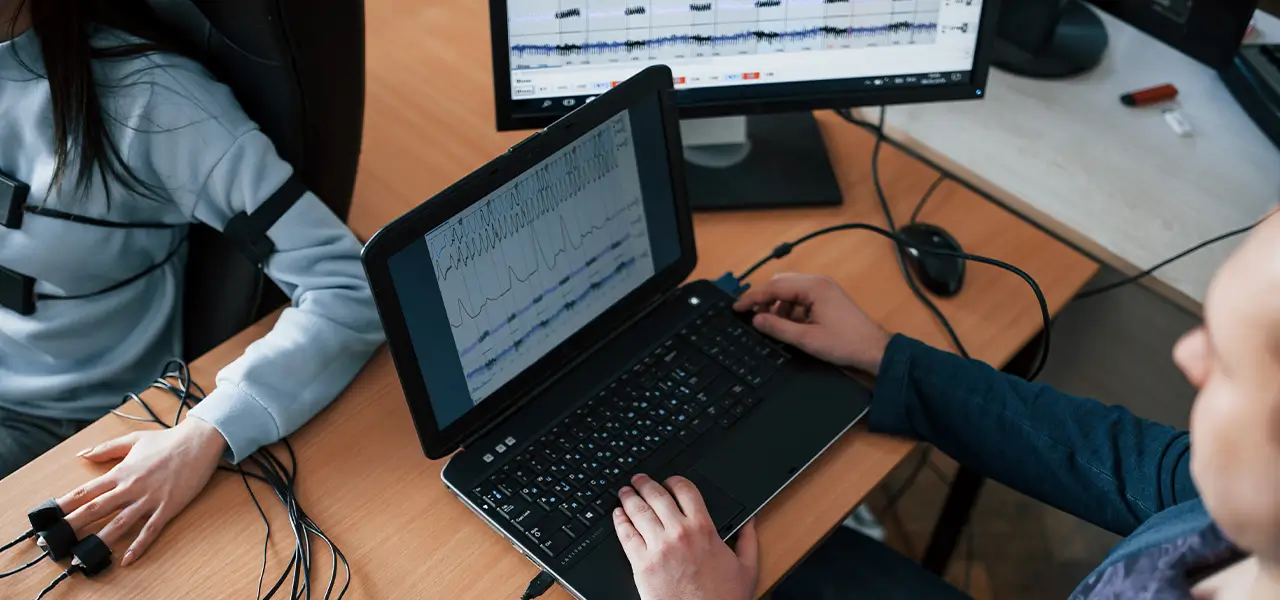In today’s world, where trust is often questioned, many individuals and organizations seek ways to verify honesty and detect deception. One widely used tool is the lie detector test, also known as a polygraph test. While polygraph tests have been used for decades to assist in uncovering the truth, their accuracy has always been a topic of debate. Lie Detector Test UK services have become increasingly popular for addressing issues ranging from personal relationships to workplace disputes, but how reliable are these tests? Can they be trusted to provide accurate results?
In this article, we’ll explore the accuracy of lie detector tests, how they work, the factors that influence their effectiveness, and what UK experts have to say about their reliability.
What is a Lie Detector Test?
A lie detector test is a method used to determine whether an individual is being truthful or deceptive by measuring physiological responses to questions. The polygraph machine monitors several physiological signals, including heart rate, blood pressure, breathing patterns, and skin conductivity (sweating). The premise of the polygraph test is that lying induces stress, and this stress can cause measurable changes in the body.
The polygraph examiner asks a series of control and relevant questions. Control questions are unrelated to the issue being investigated and are used to establish baseline physiological responses. Relevant questions, on the other hand, are directly related to the matter in question, such as whether the individual committed a specific act or is hiding information.
The examiner then compares the physiological responses to control and relevant questions to detect any deviations that may indicate deception. The results of the test are compiled and analyzed, and a report is provided to the person or organization requesting the test.
How Accurate Are Lie Detector Tests?
The accuracy of lie detector tests has been a subject of ongoing debate among experts, and various studies have reported differing levels of reliability. In the UK, polygraph examiners claim that the tests are between 80% and 90% accurate. While this is a high level of accuracy, it is not foolproof, and there are cases where the test results may not be completely reliable.
Several factors contribute to the accuracy of a lie detector test, including the following:
1. The Skill of the Examiner
One of the most important factors influencing the accuracy of a lie detector test is the expertise of the examiner. A highly trained and experienced polygraph examiner is better equipped to administer the test properly, interpret the results accurately, and ask questions in a way that elicits clear physiological responses. Inaccurate results are more likely to occur when the examiner is inexperienced or poorly trained.
In the UK, Lie Detector Test UK services are often conducted by professionals who have undergone specialized training and certification. This training ensures that they are knowledgeable about polygraph techniques and can effectively interpret the data collected during the test.
2. The Psychological State of the Subject
The psychological state of the person taking the test can significantly impact the results. For example, a person who is naturally anxious or nervous may show heightened physiological responses even when they are telling the truth. This can lead to a false positive result, where the test incorrectly identifies them as being deceptive.
Similarly, individuals who are skilled at controlling their emotions may be able to suppress their physiological reactions, leading to a false negative result, where the test fails to detect deception. Therefore, factors such as anxiety, fear, or medical conditions that affect the body’s physiological responses should be taken into account when interpreting the results.
3. The Types of Questions Asked
The types of questions asked during the test play a critical role in the accuracy of the results. Control questions should be general and expected to elicit truthful responses, while relevant questions should focus on the specific issue being investigated. If the questions are poorly formulated or ambiguous, the subject may become confused or stressed, leading to inaccurate results.
In UK lie detector tests, examiners typically spend time during the pre-test interview ensuring that the subject fully understands the questions. This helps minimize confusion and ensures that the responses are more reliable.
4. External Influences and Environmental Factors
External factors such as the testing environment, distractions, or even temperature can affect the subject’s physiological responses. For example, if the subject is uncomfortable or distracted, their stress levels may increase, which could lead to incorrect readings. Ensuring that the testing environment is calm and free of distractions is essential for obtaining accurate results.
Scientific Studies on Polygraph Accuracy
Various studies have been conducted to assess the accuracy of polygraph tests, with results ranging from moderate to high reliability. A review by the American Polygraph Association found that polygraph tests can be accurate in 80% to 90% of cases, depending on the specific test format and the circumstances. However, critics argue that the tests are not 100% reliable and that factors like subjectivity in interpretation and the psychological state of the test-taker can affect the outcomes.
The UK government has also used polygraph tests in specific legal contexts, such as in monitoring certain offenders as part of their probation. While the courts do not admit polygraph results as evidence, they are used to assist probation officers in assessing whether individuals are complying with the terms of their release.
Common Reasons for Inaccurate Results
Even with well-trained examiners and controlled environments, inaccurate results can occur. Some of the most common reasons include:
- False Positives: When a truthful person is incorrectly identified as lying due to heightened anxiety or nervousness.
- False Negatives: When a deceptive person is not detected because they can control their physiological responses.
- Health Conditions: Certain medical conditions, such as heart disease or nervous system disorders, may affect the subject’s physiological signals, leading to skewed results.
- Lack of Examiner Expertise: In some cases, an inexperienced examiner may misinterpret the data or ask poorly formulated questions, resulting in inaccurate conclusions.
Can Lie Detector Tests Be Trusted?
While lie detector test UK services can provide valuable insights into whether someone is telling the truth, it’s important to understand that they are not infallible. The accuracy of the test depends on various factors, including the examiner’s expertise, the subject’s psychological state, and the quality of the test environment.
For this reason, polygraph test results should not be the sole basis for making important decisions, particularly in legal or high-stakes situations. Instead, they should be used as part of a broader investigation or decision-making process, alongside other evidence and considerations.
Conclusion
Lie detector tests can be an effective tool for detecting deception, with many experts in the UK claiming accuracy rates of 80% to 90%. However, the accuracy of the test is influenced by several factors, including the skill of the examiner, the psychological state of the subject, and the testing environment. While polygraph tests are useful in uncovering the truth, it’s essential to recognize their limitations and consider them as part of a larger body of evidence rather than as definitive proof of honesty or deception.

